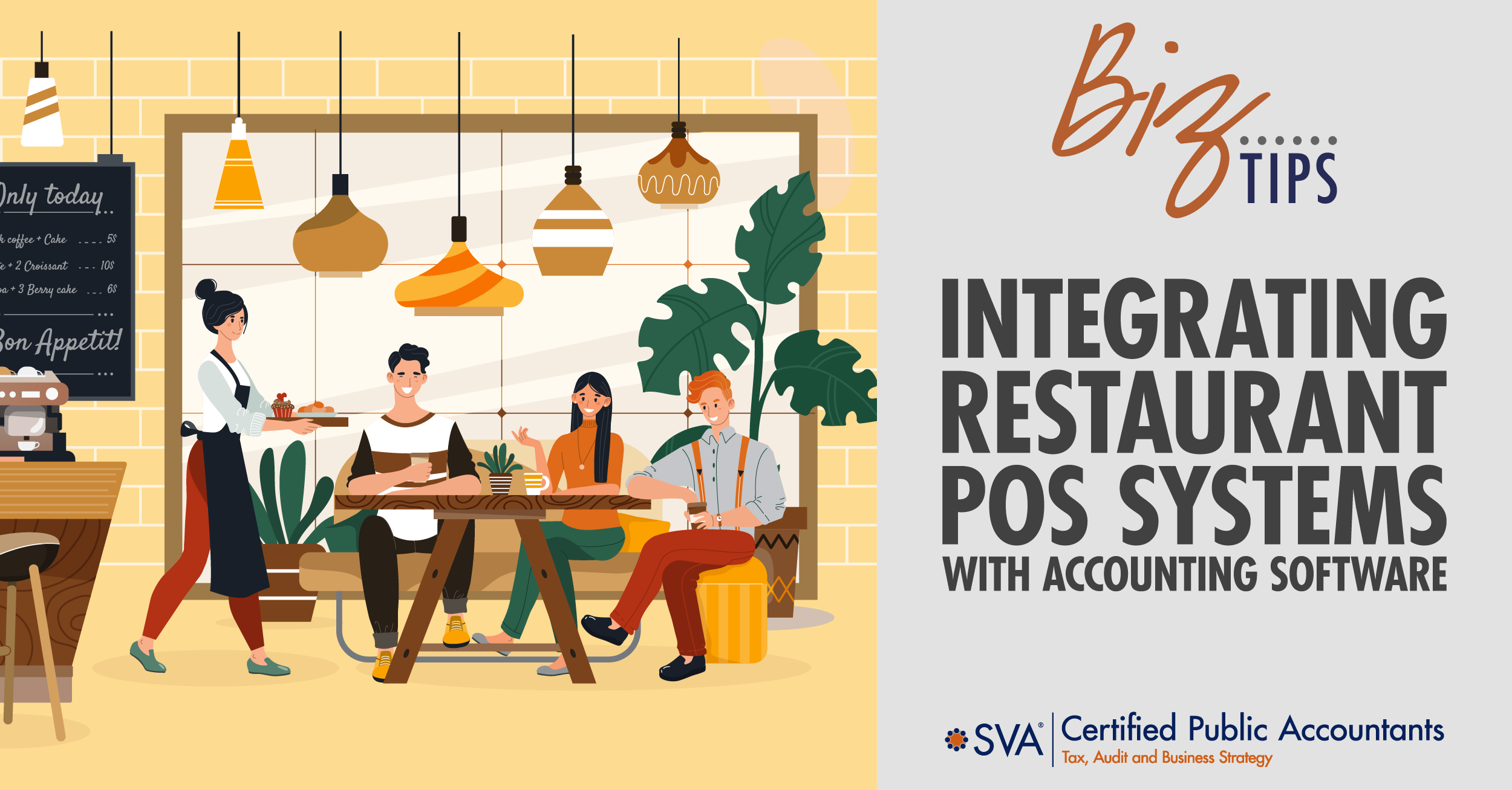| Highlights: |
- Explains the key benefits of linking a restaurant’s point-of-sale (POS) system with accounting software, such as reducing manual data entry errors and improving financial reporting accuracy.
- Describes how real-time data synchronization, simplified tax reporting, and enhanced inventory tracking help restaurant owners gain timely financial insights and streamline operations.
- Covers best practices for successful integration, including choosing compatible systems, aligning chart of accounts, staff training, and regular reconciliation to maintain accurate financial records.
|
Managing day-to-day operations while ensuring accurate financial reporting can be a challenge for restaurant owners. One of the most effective ways to streamline this process is by integrating your point-of-sale (POS) system with your accounting software.
This integration saves time and ensures that your revenue recognition is aligned with your accounting systems, providing more accurate financial reporting and better insights into your business performance.
The Benefits of Integrating a POS System with Accounting Software
Improved Accuracy in Financial Reporting
By integrating your POS system with accounting software, you eliminate the need for manual data entry, reducing the risk of errors in your financial records.
All transactions recorded through the POS system are automatically synced with your accounting software, ensuring that revenue, expenses, and taxes are accurately reflected in your financial reports.
Real-Time Data Synchronization
Integration allows for real-time data updates between your POS and accounting system. This means that every sale, refund, or adjustment is instantly reflected in your financial records, giving you an up-to-date picture of your restaurant's financial health.
This is especially beneficial for making timely business decisions, such as adjusting pricing or managing inventory.
Streamlined Revenue Recognition
An integrated POS system ensures that revenue is recognized as soon as sales are made, providing a clear and accurate representation of your daily earnings.
This automatic alignment between sales and accounting records helps prevent discrepancies and ensures compliance with financial reporting standards.
Simplified Tax Reporting
When your POS system is integrated with accounting software, tax reporting becomes much easier. The system can automatically categorize and calculate sales tax for each transaction, ensuring that you remain compliant with tax regulations.
At the end of the tax period, you’ll have a clear, organized record of all taxable and non-taxable sales, making the filing process more efficient.
Enhanced Inventory Management
Many POS systems come with inventory management features that allow you to track inventory levels in real time. When integrated with accounting software, these systems can provide valuable insights into inventory costs, helping you monitor expenses, reduce waste, and manage reorder points.
This improves your cash flow management and ensures that your accounting reflects the true cost of goods sold.
Time and Labor Savings
Manual data entry between your POS system and accounting software is time-consuming and prone to mistakes. Integrating the two systems frees up time for you and your team to focus on other critical tasks, like improving customer service or optimizing kitchen operations.
The automation of financial tasks also helps reduce labor costs related to accounting and bookkeeping.
Better Financial Insights
With your POS and accounting systems integrated, you gain access to a comprehensive set of financial reports that provide deeper insights into your restaurant’s performance.
From daily sales summaries to detailed expense tracking, you can analyze profit margins, operating costs, and revenue trends more effectively. This data-driven approach helps you make informed decisions to improve profitability.
Best Practices for Integration
1. Choose Compatible Systems
Before integrating your POS and accounting software, make sure the two systems are compatible and can communicate seamlessly. Many accounting software providers offer integrations with popular POS systems, but it’s important to check for compatibility and any potential limitations.
2. Map Your Chart of Accounts
Make sure that the chart of accounts in your accounting software aligns with the categories in your POS system. This will ensure that revenue, expenses, and other financial data are correctly categorized when transactions are transferred from the POS system.
3. Regularly Reconcile Accounts
Even with automated systems, you must regularly reconcile your accounts to confirm that your financial records are accurate and up to date. This will help catch any discrepancies early and keep your financial statements compliant with reporting standards.
4. Train Your Staff
Proper training for your staff on how to use the integrated systems is key to ensuring smooth operations. Make sure your team knows how to enter transactions correctly in the POS system and understands how the integration impacts accounting and financial reporting.
5. Monitor and Adjust
After integrating your POS and accounting systems, monitor the performance of the integration regularly. Ensure that data is syncing correctly and make adjustments as needed to keep your financial reporting accurate and reliable.
The Case for Integration
For restaurant owners, integrating a point-of-sale system with accounting software offers significant benefits, from improved accuracy in revenue recognition to time and labor savings.
Streamlining the flow of data between your POS and accounting systems will reduce errors, simplify tax reporting, and provide better financial insights to help your business thrive.
To learn more about how integrating your POS system and accounting software, contact us today. Our knowledgeable professionals can help.
© 2025 SVA Certified Public Accountants

